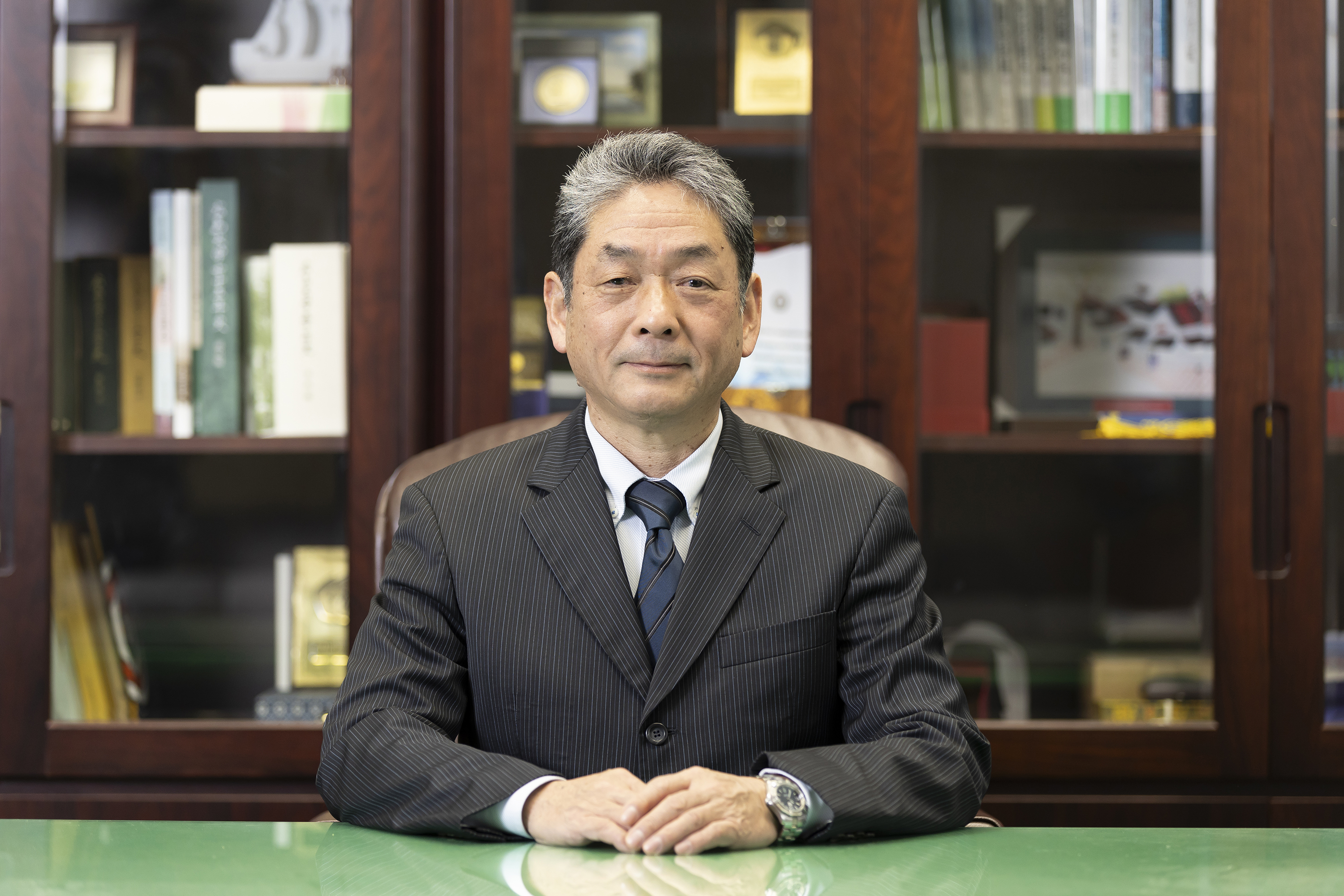
MIZUTA Tsutomu, Dean of School of Science
The sciences dealt with in the School of Science cover all aspects of the natural world, including the Earth and the universe, the ecology of life and organisms, the functions and properties of materials, the structure and reactions of molecules, numbers, and shapes. In modern society, we benefit from a variety of sciences. For instance, when we use a smartphone, we rely on artificial intelligence for online searches, virtual reality images for videos, satellites which use GPS, cutting-edge materials used in semiconductor components, life activity monitoring through apps, and emergency earthquake alerts. These innovations make our daily lives more convenient and safer. While these are the results of technologies developed by modern society, the foundation of these technologies lies in the wisdom humanity has accumulated through science.
The individual pieces of knowledge humanity has accumulated were not researched with the goal of making smartphones, but rather stem from researchers’ intellectual curiosity and interest. These include questions like what lies beyond the stars we see in the night sky, how the properties of substances in our hands are related to the behavior of atoms and molecules, and how everyday phenomena can be expressed through mathematical formulas. The motivation for research is a deep curiosity to uncover the underlying principles and laws that govern the world around us, whether in the stars, in materials, or in societal phenomena. The insight and curiosity developed here are universal abilities needed for humanity’s intellectual activities and for maintaining civilization. The School of Science offers curricula in various specialized fields to nurture all the qualities necessary to become a scientist, and through cutting-edge research in their graduation projects, students are prepared to start their careers as scientists.
The School of Science traces its origins to Hiroshima University of Literature and Science, founded in 1929. Over nearly 100 years, it has made remarkable research achievements and sent many talented individuals into society. Many have played significant roles in education, as well as in research and engineering positions in universities and companies. The five departments—Mathematics, Physical Science, Chemistry, Biological Science, and Earth and Planetary Systems Science—cover almost all areas of natural science, offering high-quality education that meets the satisfaction of enrolled students. Many graduates go on to pursue further specialization in graduate school. The seamless research guidance system from undergraduate to graduate levels allows for more advanced research, which is a characteristic feature of the School of Science.
We also have numerous related educational facilities, such as the Research Institute for Synchrotron Radiation Science, Hiroshima Astrophysical Science Center, the Amphibian Research Center, the Natural Science Center for Basic Research and Development, Mukaishima Marine Biological Laboratory, and Miyajima Natural Botanical Garden. New facilities like the Genome Editing Innovation Center and the World Premier International Research Center (WPI) have been added, further enriching the resources available. We offer an environment conducive to answering your academic interests and research goals, and we hope you will make the most of these opportunities to make significant advancements in your studies.
We will post educational and research activities on this website.


 Home
Home